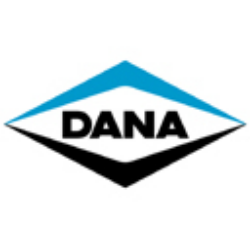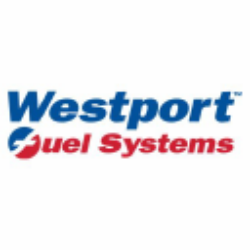DNZOF

DENSO Corporation
DNZOF
(3.2)15,20 USD
3.36% ROA
5.78% ROE
20.92x PER
6.112.670.914.881,20 USD
14.08% DER
2.82% Yield
4.18% NPM
DENSO Corporation Stock Analysis
DENSO Corporation Fundamental Analysis
Fundamental analysis in stock investing is like studying the foundation of a house before buying it. It involves looking at a company's financial health, like its earnings, assets, and debts, to determine if it's a good investment based on its fundamental strength and potential for growth.
| # | Analysis | Rating |
|---|---|---|
| 1 |
PBV
The stock's low PBV ratio (0.37x) suggests it's undervalued, making it an attractive opportunity for investors. |
|
| 2 |
DER
The stock has a low debt to equity ratio (19%), which means it has a small amount of debt compared to the ownership it holds |
|
| 3 |
Net Profit Growth
This company has consistently achieved strong net profit growth over the past five years, demonstrating a solid financial performance and making it an appealing investment option. |
|
| 4 |
ROE
The stock's ROE falls within an average range (7.89%), demonstrating satisfactory profitability and efficiency in utilizing shareholders' equity. |
|
| 5 |
ROA
The stock's ROA (4.38%) indicates that it's doing well in making money from the things it owns. This makes it a good option to invest and make consistent profits. |
|
| 6 |
Revenue Growth
This company's revenue has shown remarkable growth over the past three years, making it an excellent choice for seeking a consistently prosperous investment. |
|
| 7 |
Graham Number
The Graham number analysis indicates that this company's stock price is likely undervalued, raising prospects for a favorable investment opportunity. |
|
| 8 |
Dividend Growth
Investors can be encouraged by the company's strong dividend growth over the past three years, highlighting its ability to generate consistent returns and provide an attractive investment opportunity. |
|
| 9 |
Dividend
The company's track record of consistently paying dividends in the last three years highlights its dedication to providing investors with regular income. |
|
| 10 |
Buffet Intrinsic Value
The company's stock shows potential as it is undervalued (71.320) according to Warren Buffett's formula, indicating that its intrinsic value exceeds the market price. |
|
| 11 |
Assets Growth
Company's revenue has stayed stagnant, showing no signs of improvement and making it a less favorable choice. |
DENSO Corporation Technical Analysis
Technical analysis in stock investing is like reading the patterns on a weather map to predict future weather conditions. It involves studying past stock price movements and trading volumes to make predictions about where a stock's price might go next, without necessarily looking at the company's financial health.
| # | Analysis | Recommendation |
|---|---|---|
| 1 | Awesome Oscillator | Sell |
| 2 | MACD | Buy |
| 3 | RSI | Hold |
| 4 | Stoch RSI | Hold |
DENSO Corporation Price Chart
Financial Statements
Financial statements are like report cards for companies. They show how much money a company makes (income statement), what it owns and owes (balance sheet), and where it spends its money (cash flow statement), helping stock investors understand if a company is healthy and worth investing in.
Income Statements
An income statement for a company is like a scoreboard for its profits and losses. It shows how much money the company made (revenue) and how much it spent to make that money (expenses), helping stock investors see if a company is making a profit or not.
Revenue in stock investing is the total amount of money a company earns from its sales, and it's a key factor that investors consider to assess a company's financial performance and growth potential.
| Year | Revenue | Growth |
|---|---|---|
| 2000 | 1.883.407.000.000 | |
| 2001 | 2.014.978.000.000 | 6.53% |
| 2002 | 2.401.098.000.000 | 16.08% |
| 2003 | 2.332.760.000.000 | -2.93% |
| 2004 | 2.562.411.000.000 | 8.96% |
| 2005 | 2.799.949.000.000 | 8.48% |
| 2006 | 3.188.330.000.000 | 12.18% |
| 2007 | 3.609.700.000.000 | 11.67% |
| 2008 | 4.025.076.000.000 | 10.32% |
| 2009 | 3.142.665.000.000 | -28.08% |
| 2010 | 2.976.709.000.000 | -5.58% |
| 2011 | 3.131.460.000.000 | 4.94% |
| 2012 | 3.154.630.000.000 | 0.73% |
| 2013 | 3.580.923.000.000 | 11.9% |
| 2014 | 4.095.925.000.000 | 12.57% |
| 2015 | 4.309.787.000.000 | 4.96% |
| 2016 | 4.524.522.000.000 | 4.75% |
| 2017 | 4.527.148.000.000 | 0.06% |
| 2018 | 5.108.291.000.000 | 11.38% |
| 2019 | 5.362.772.000.000 | 4.75% |
| 2020 | 5.362.772.000.000 | 0% |
| 2021 | 5.153.476.000.000 | -4.06% |
| 2022 | 4.936.725.000.000 | -4.39% |
| 2023 | 6.420.420.000.000 | 23.11% |
| 2023 | 5.515.512.000.000 | -16.41% |
| 2024 | 6.851.440.000.000 | 19.5% |
| 2024 | 7.144.733.000.000 | 4.11% |
| 2025 | 7.015.364.000.000 | -1.84% |
Research and Development Expenses are the costs a company incurs to create and improve its products or services, which can be important for investors to evaluate a company's innovation and potential for future growth.
| Year | Research and Development Expenses | Growth |
|---|---|---|
| 2000 | 0 | |
| 2001 | 0 | 0% |
| 2002 | 0 | 0% |
| 2003 | 0 | 0% |
| 2004 | 0 | 0% |
| 2005 | 0 | 0% |
| 2006 | 0 | 0% |
| 2007 | 0 | 0% |
| 2008 | 0 | 0% |
| 2009 | 0 | 0% |
| 2010 | 0 | 0% |
| 2011 | 0 | 0% |
| 2012 | 0 | 0% |
| 2013 | 335.460.000.000 | 100% |
| 2014 | 368.732.000.000 | 9.02% |
| 2015 | 396.440.000.000 | 6.99% |
| 2016 | 399.238.000.000 | 0.7% |
| 2017 | 409.223.000.000 | 2.44% |
| 2018 | 447.378.000.000 | 8.53% |
| 2019 | 497.417.000.000 | 10.06% |
| 2020 | 507.827.000.000 | 2.05% |
| 2021 | 492.012.000.000 | -3.21% |
| 2022 | 497.556.000.000 | 1.11% |
| 2023 | 0 | 0% |
| 2023 | 521.615.000.000 | 100% |
| 2024 | 0 | 0% |
| 2024 | 550.921.000.000 | 100% |
| 2025 | 0 | 0% |
General and Administrative Expenses are the costs a company incurs to run its day-to-day operations, such as office rent, salaries, and utilities, which investors consider to understand a company's overall efficiency and management effectiveness.
| Year | General and Administrative Expenses | Growth |
|---|---|---|
| 2000 | 184.869.000.000 | |
| 2001 | 196.108.000.000 | 5.73% |
| 2002 | 220.587.000.000 | 11.1% |
| 2003 | 224.231.000.000 | 1.63% |
| 2004 | 245.148.000.000 | 8.53% |
| 2005 | 276.341.000.000 | 11.29% |
| 2006 | 298.773.000.000 | 7.51% |
| 2007 | 316.262.000.000 | 5.53% |
| 2008 | 0 | 0% |
| 2009 | 89.247.000.000 | 100% |
| 2010 | 60.604.000.000 | -47.26% |
| 2011 | 62.715.000.000 | 3.37% |
| 2012 | 55.140.000.000 | -13.74% |
| 2013 | 36.794.000.000 | -49.86% |
| 2014 | 38.183.000.000 | 3.64% |
| 2015 | 399.464.000.000 | 90.44% |
| 2016 | 412.015.000.000 | 3.05% |
| 2017 | 431.192.000.000 | 4.45% |
| 2018 | 447.732.000.000 | 3.69% |
| 2019 | 513.323.000.000 | 12.78% |
| 2020 | 513.323.000.000 | 0% |
| 2021 | 668.509.000.000 | 23.21% |
| 2022 | 514.492.000.000 | -29.94% |
| 2023 | 500.236.000.000 | -2.85% |
| 2023 | 460.449.000.000 | -8.64% |
| 2024 | 526.828.000.000 | 12.6% |
| 2024 | 715.164.000.000 | 26.33% |
| 2025 | 0 | 0% |
EBITDA stands for Earnings Before Interest, Taxes, Depreciation, and Amortization. It is a measure that helps stock investors analyze a company's profitability by looking at its earnings without considering certain expenses. This helps to get a clearer picture of the company's financial performance and its ability to generate cash flow.
| Year | EBITDA | Growth |
|---|---|---|
| 2000 | 264.843.000.000 | |
| 2001 | 270.044.000.000 | 1.93% |
| 2002 | 295.032.000.000 | 8.47% |
| 2003 | 322.814.000.000 | 8.61% |
| 2004 | 348.139.000.000 | 7.27% |
| 2005 | 385.212.000.000 | 9.62% |
| 2006 | 464.882.000.000 | 17.14% |
| 2007 | 543.868.000.000 | 14.52% |
| 2008 | 613.746.000.000 | 11.39% |
| 2009 | 348.001.000.000 | -76.36% |
| 2010 | 483.955.000.000 | 28.09% |
| 2011 | 492.922.000.000 | 1.82% |
| 2012 | 454.029.000.000 | -8.57% |
| 2013 | 486.612.000.000 | 6.7% |
| 2014 | 629.203.000.000 | 22.66% |
| 2015 | 601.403.000.000 | -4.62% |
| 2016 | 592.935.000.000 | -1.43% |
| 2017 | 611.864.000.000 | 3.09% |
| 2018 | 728.024.000.000 | 15.96% |
| 2019 | 655.355.000.000 | -11.09% |
| 2020 | 655.355.000.000 | 0% |
| 2021 | 412.140.000.000 | -59.01% |
| 2022 | 536.661.000.000 | 23.2% |
| 2023 | 729.124.000.000 | 26.4% |
| 2023 | 739.737.000.000 | 1.43% |
| 2024 | 909.192.000.000 | 18.64% |
| 2024 | 787.725.000.000 | -15.42% |
| 2025 | 862.096.000.000 | 8.63% |
Gross profit is the money a company makes from selling its products or services after subtracting the cost of producing or providing them, and it is an important measure for investors to understand a company's profitability.
| Year | Gross Profit | Growth |
|---|---|---|
| 2000 | 301.551.000.000 | |
| 2001 | 319.634.000.000 | 5.66% |
| 2002 | 353.927.000.000 | 9.69% |
| 2003 | 384.124.000.000 | 7.86% |
| 2004 | 433.807.000.000 | 11.45% |
| 2005 | 490.236.000.000 | 11.51% |
| 2006 | 565.332.000.000 | 13.28% |
| 2007 | 619.330.000.000 | 8.72% |
| 2008 | 710.186.000.000 | 12.79% |
| 2009 | 291.675.000.000 | -143.49% |
| 2010 | 416.716.000.000 | 30.01% |
| 2011 | 469.497.000.000 | 11.24% |
| 2012 | 434.740.000.000 | -7.99% |
| 2013 | 573.309.000.000 | 24.17% |
| 2014 | 754.091.000.000 | 23.97% |
| 2015 | 757.595.000.000 | 0.46% |
| 2016 | 777.211.000.000 | 2.52% |
| 2017 | 757.616.000.000 | -2.59% |
| 2018 | 853.693.000.000 | 11.25% |
| 2019 | 830.900.000.000 | -2.74% |
| 2020 | 830.900.000.000 | 0% |
| 2021 | 729.600.000.000 | -13.88% |
| 2022 | 661.486.000.000 | -10.3% |
| 2023 | 880.072.000.000 | 24.84% |
| 2023 | 801.488.000.000 | -9.8% |
| 2024 | 911.948.000.000 | 12.11% |
| 2024 | 1.605.528.000.000 | 43.2% |
| 2025 | 1.007.256.000.000 | -59.4% |
Net income in stock investing is like the money a company actually gets to keep as profit after paying all its bills, and it's an important measure to understand how well a company is doing financially.
| Year | Net Profit | Growth |
|---|---|---|
| 2000 | 61.913.000.000 | |
| 2001 | 60.799.000.000 | -1.83% |
| 2002 | 72.313.000.000 | 15.92% |
| 2003 | 111.018.000.000 | 34.86% |
| 2004 | 110.027.000.000 | -0.9% |
| 2005 | 132.620.000.000 | 17.04% |
| 2006 | 169.648.000.000 | 21.83% |
| 2007 | 205.170.000.000 | 17.31% |
| 2008 | 244.417.000.000 | 16.06% |
| 2009 | -84.085.000.000 | 390.68% |
| 2010 | 73.427.000.000 | 214.52% |
| 2011 | 143.033.000.000 | 48.66% |
| 2012 | 89.298.000.000 | -60.17% |
| 2013 | 181.682.000.000 | 50.85% |
| 2014 | 287.388.000.000 | 36.78% |
| 2015 | 258.382.000.000 | -11.23% |
| 2016 | 244.251.000.000 | -5.79% |
| 2017 | 257.619.000.000 | 5.19% |
| 2018 | 320.561.000.000 | 19.63% |
| 2019 | 254.524.000.000 | -25.95% |
| 2020 | 254.524.000.000 | 0% |
| 2021 | 68.099.000.000 | -273.76% |
| 2022 | 125.055.000.000 | 45.54% |
| 2023 | 215.692.000.000 | 42.02% |
| 2023 | 314.633.000.000 | 31.45% |
| 2024 | 341.840.000.000 | 7.96% |
| 2024 | 312.791.000.000 | -9.29% |
| 2025 | 377.836.000.000 | 17.22% |
EPS, or earnings per share, is a measure that shows how much profit a company has earned for each outstanding share of its stock, and it is important for stock investors as it helps understand the profitability of a company and compare it with other companies in the market.
| Year | Earning per Share (EPS) | Growth |
|---|---|---|
| 2000 | 17 | |
| 2001 | 17 | 0% |
| 2002 | 20 | 20% |
| 2003 | 32 | 37.5% |
| 2004 | 33 | 0% |
| 2005 | 40 | 17.95% |
| 2006 | 51 | 23.53% |
| 2007 | 62 | 17.74% |
| 2008 | 75 | 16.22% |
| 2009 | -26 | 384.62% |
| 2010 | 23 | 218.18% |
| 2011 | 44 | 50% |
| 2012 | 28 | -62.96% |
| 2013 | 57 | 51.79% |
| 2014 | 90 | 37.78% |
| 2015 | 81 | -11.11% |
| 2016 | 77 | -6.58% |
| 2017 | 82 | 6.17% |
| 2018 | 103 | 20.59% |
| 2019 | 82 | -25.93% |
| 2020 | 82 | 1.22% |
| 2021 | 22 | -290.48% |
| 2022 | 41 | 47.5% |
| 2023 | 283 | 85.87% |
| 2023 | 104 | -172.12% |
| 2024 | 457 | 77.19% |
| 2024 | 105 | -338.46% |
| 2025 | 130 | 19.38% |
Cashflow Statements
Cashflow statements show the movement of money in and out of a company, helping stock investors understand how much money a company makes and spends. By examining cashflow statements, investors can assess if a company is generating enough cash to pay its bills, invest in growth, and provide returns to stockholders.
Free cash flow is the leftover cash that a company generates after covering its operating expenses and capital expenditures, which is important for stock investors as it shows how much money a company has available to invest in growth, pay dividends, or reduce debt.
| Year | Free Cashflow | Growth |
|---|---|---|
| 2000 | 11.930.000.000 | |
| 2001 | 57.853.000.000 | 79.38% |
| 2002 | 18.386.000.000 | -214.66% |
| 2003 | 88.005.000.000 | 79.11% |
| 2004 | 35.371.000.000 | -148.81% |
| 2005 | 47.050.000.000 | 24.82% |
| 2006 | 91.246.000.000 | 48.44% |
| 2007 | 95.347.000.000 | 4.3% |
| 2008 | 231.300.000.000 | 58.78% |
| 2009 | -107.890.000.000 | 314.39% |
| 2010 | 230.150.000.000 | 146.88% |
| 2011 | 251.539.000.000 | 8.5% |
| 2012 | 3.213.000.000 | -7728.79% |
| 2013 | 148.369.000.000 | 97.83% |
| 2014 | 147.909.000.000 | -0.31% |
| 2015 | 18.540.000.000 | -697.78% |
| 2016 | 208.482.000.000 | 91.11% |
| 2017 | 123.364.000.000 | -69% |
| 2018 | 190.011.000.000 | 35.08% |
| 2019 | 85.981.000.000 | -120.99% |
| 2020 | 85.981.000.000 | 0% |
| 2021 | 128.689.000.000 | 33.19% |
| 2022 | 2.554.000.000 | -4938.72% |
| 2023 | 11.026.000.000 | 76.84% |
| 2023 | 23.493.000.000 | 53.07% |
| 2024 | 197.087.000.000 | 88.08% |
| 2024 | 515.421.000.000 | 61.76% |
| 2025 | 182.589.000.000 | -182.28% |
Operating cash flow represents the cash generated or consumed by a company's day-to-day operations, excluding external investing or financing activities, and is crucial for stock investors as it shows how much cash a company is generating from its core business operations.
| Year | Operating Cashflow | Growth |
|---|---|---|
| 2000 | 196.020.000.000 | |
| 2001 | 202.127.000.000 | 3.02% |
| 2002 | 206.663.000.000 | 2.19% |
| 2003 | 267.344.000.000 | 22.7% |
| 2004 | 231.814.000.000 | -15.33% |
| 2005 | 273.296.000.000 | 15.18% |
| 2006 | 368.575.000.000 | 25.85% |
| 2007 | 406.543.000.000 | 9.34% |
| 2008 | 572.663.000.000 | 29.01% |
| 2009 | 209.915.000.000 | -172.81% |
| 2010 | 357.141.000.000 | 41.22% |
| 2011 | 395.527.000.000 | 9.71% |
| 2012 | 176.682.000.000 | -123.86% |
| 2013 | 374.775.000.000 | 52.86% |
| 2014 | 462.799.000.000 | 19.02% |
| 2015 | 383.156.000.000 | -20.79% |
| 2016 | 552.862.000.000 | 30.7% |
| 2017 | 467.779.000.000 | -18.19% |
| 2018 | 558.001.000.000 | 16.17% |
| 2019 | 533.487.000.000 | -4.6% |
| 2020 | 533.487.000.000 | 0% |
| 2021 | 595.320.000.000 | 10.39% |
| 2022 | 437.235.000.000 | -36.16% |
| 2023 | 112.254.000.000 | -289.51% |
| 2023 | 395.637.000.000 | 71.63% |
| 2024 | 297.992.000.000 | -32.77% |
| 2024 | 961.826.000.000 | 69.02% |
| 2025 | 273.171.000.000 | -252.1% |
Capex, short for capital expenditures, refers to the money a company spends on acquiring or upgrading tangible assets like buildings, equipment, or technology, which is important for stock investors as it indicates how much a company is investing in its infrastructure to support future growth and profitability.
| Year | Capital Expenditure | Growth |
|---|---|---|
| 2000 | 184.090.000.000 | |
| 2001 | 144.274.000.000 | -27.6% |
| 2002 | 188.277.000.000 | 23.37% |
| 2003 | 179.339.000.000 | -4.98% |
| 2004 | 196.443.000.000 | 8.71% |
| 2005 | 226.246.000.000 | 13.17% |
| 2006 | 277.329.000.000 | 18.42% |
| 2007 | 311.196.000.000 | 10.88% |
| 2008 | 341.363.000.000 | 8.84% |
| 2009 | 317.805.000.000 | -7.41% |
| 2010 | 126.991.000.000 | -150.26% |
| 2011 | 143.988.000.000 | 11.8% |
| 2012 | 173.469.000.000 | 16.99% |
| 2013 | 226.406.000.000 | 23.38% |
| 2014 | 314.890.000.000 | 28.1% |
| 2015 | 364.616.000.000 | 13.64% |
| 2016 | 344.380.000.000 | -5.88% |
| 2017 | 344.415.000.000 | 0.01% |
| 2018 | 367.990.000.000 | 6.41% |
| 2019 | 447.506.000.000 | 17.77% |
| 2020 | 447.506.000.000 | 0% |
| 2021 | 466.631.000.000 | 4.1% |
| 2022 | 434.681.000.000 | -7.35% |
| 2023 | 101.228.000.000 | -329.41% |
| 2023 | 372.144.000.000 | 72.8% |
| 2024 | 100.905.000.000 | -268.81% |
| 2024 | 446.405.000.000 | 77.4% |
| 2025 | 90.582.000.000 | -392.82% |
Balance Sheet
Balance sheets provide a snapshot of a company's financial health and its assets (such as cash, inventory, and property) and liabilities (like debts and obligations) at a specific point in time. For stock investors, balance sheets help assess the company's overall worth and evaluate its ability to meet financial obligations and support future growth.
Equity refers to the ownership interest or stake that shareholders have in a company, representing their claim on its assets and earnings after all debts and liabilities are paid.
| Year | Equity | Growth |
|---|---|---|
| 2000 | 1.372.375.000.000 | |
| 2001 | 1.509.466.000.000 | 9.08% |
| 2002 | 1.484.677.000.000 | -1.67% |
| 2003 | 1.464.546.000.000 | -1.37% |
| 2004 | 1.581.424.000.000 | 7.39% |
| 2005 | 1.718.880.000.000 | 8% |
| 2006 | 2.066.303.000.000 | 16.81% |
| 2007 | 2.286.956.000.000 | 9.65% |
| 2008 | 2.282.677.000.000 | -0.19% |
| 2009 | 1.900.719.000.000 | -20.1% |
| 2010 | 2.032.264.000.000 | 6.47% |
| 2011 | 2.072.443.000.000 | 1.94% |
| 2012 | 2.117.201.000.000 | 2.11% |
| 2013 | 2.426.861.000.000 | 12.76% |
| 2014 | 2.823.346.000.000 | 14.04% |
| 2015 | 3.474.211.000.000 | 18.73% |
| 2016 | 3.255.035.000.000 | -6.73% |
| 2017 | 3.447.082.000.000 | 5.57% |
| 2018 | 3.774.293.000.000 | 8.67% |
| 2019 | 3.770.366.000.000 | -0.1% |
| 2020 | 3.770.366.000.000 | 0% |
| 2021 | 3.558.869.000.000 | -5.94% |
| 2022 | 4.076.717.000.000 | 12.7% |
| 2023 | 4.489.526.000.000 | 9.19% |
| 2023 | 4.468.561.000.000 | -0.47% |
| 2024 | 4.847.759.000.000 | 7.82% |
| 2024 | 5.746.505.000.000 | 15.64% |
| 2025 | 5.689.289.000.000 | -1.01% |
Assets represent the valuable resources that a company owns, such as cash, inventory, property, and equipment, and understanding a company's assets helps investors assess its value and potential for generating future profits.
| Year | Assets | Growth |
|---|---|---|
| 2000 | 2.154.251.000.000 | |
| 2001 | 2.343.328.000.000 | 8.07% |
| 2002 | 2.361.048.000.000 | 0.75% |
| 2003 | 2.354.657.000.000 | -0.27% |
| 2004 | 2.526.502.000.000 | 6.8% |
| 2005 | 2.780.982.000.000 | 9.15% |
| 2006 | 3.411.975.000.000 | 18.49% |
| 2007 | 3.765.135.000.000 | 9.38% |
| 2008 | 3.643.418.000.000 | -3.34% |
| 2009 | 3.018.438.000.000 | -20.71% |
| 2010 | 3.364.070.000.000 | 10.27% |
| 2011 | 3.380.433.000.000 | 0.48% |
| 2012 | 3.607.697.000.000 | 6.3% |
| 2013 | 3.979.093.000.000 | 9.33% |
| 2014 | 4.442.507.000.000 | 10.43% |
| 2015 | 5.283.257.000.000 | 15.91% |
| 2016 | 5.042.896.000.000 | -4.77% |
| 2017 | 5.150.762.000.000 | 2.09% |
| 2018 | 5.764.417.000.000 | 10.65% |
| 2019 | 5.792.414.000.000 | 0.48% |
| 2020 | 5.792.414.000.000 | 0% |
| 2021 | 5.651.801.000.000 | -2.49% |
| 2022 | 6.767.684.000.000 | 16.49% |
| 2023 | 7.432.271.000.000 | 8.94% |
| 2023 | 7.346.338.000.000 | -1.17% |
| 2024 | 8.124.064.000.000 | 9.57% |
| 2024 | 9.093.370.000.000 | 10.66% |
| 2025 | 8.898.083.000.000 | -2.19% |
Liabilities refer to the financial obligations or debts that a company owes to creditors or external parties, and understanding a company's liabilities is important for investors as it helps assess the company's financial risk and ability to meet its obligations.
| Year | Liabilities | Growth |
|---|---|---|
| 2000 | 781.876.000.000 | |
| 2001 | 833.862.000.000 | 6.23% |
| 2002 | 876.371.000.000 | 4.85% |
| 2003 | 890.111.000.000 | 1.54% |
| 2004 | 945.078.000.000 | 5.82% |
| 2005 | 1.062.102.000.000 | 11.02% |
| 2006 | 1.345.672.000.000 | 21.07% |
| 2007 | 1.478.179.000.000 | 8.96% |
| 2008 | 1.360.741.000.000 | -8.63% |
| 2009 | 1.117.719.000.000 | -21.74% |
| 2010 | 1.331.806.000.000 | 16.07% |
| 2011 | 1.307.990.000.000 | -1.82% |
| 2012 | 1.490.496.000.000 | 12.24% |
| 2013 | 1.552.232.000.000 | 3.98% |
| 2014 | 1.619.161.000.000 | 4.13% |
| 2015 | 1.809.046.000.000 | 10.5% |
| 2016 | 1.787.861.000.000 | -1.18% |
| 2017 | 1.703.680.000.000 | -4.94% |
| 2018 | 1.990.124.000.000 | 14.39% |
| 2019 | 2.022.048.000.000 | 1.58% |
| 2020 | 2.022.048.000.000 | 0% |
| 2021 | 2.092.932.000.000 | 3.39% |
| 2022 | 2.690.967.000.000 | 22.22% |
| 2023 | 2.942.745.000.000 | 8.56% |
| 2023 | 2.877.777.000.000 | -2.26% |
| 2024 | 3.080.978.000.000 | 6.6% |
| 2024 | 3.346.865.000.000 | 7.94% |
| 2025 | 3.208.794.000.000 | -4.3% |
DENSO Corporation Financial Ratio (TTM)
Valuation Metrics
- Revenue per Share
- 2401.48
- Net Income per Share
- 100.4
- Price to Earning Ratio
- 20.92x
- Price To Sales Ratio
- 0.87x
- POCF Ratio
- 7.22
- PFCF Ratio
- 14.34
- Price to Book Ratio
- 1.12
- EV to Sales
- 0.83
- EV Over EBITDA
- 7.5
- EV to Operating CashFlow
- 6.87
- EV to FreeCashFlow
- 13.63
- Earnings Yield
- 0.05
- FreeCashFlow Yield
- 0.07
- Market Cap
- 6.112,67 Bil.
- Enterprise Value
- 5.811,35 Bil.
- Graham Number
- 2061.94
- Graham NetNet
- -221.97
Income Statement Metrics
- Net Income per Share
- 100.4
- Income Quality
- 2.35
- ROE
- 0.06
- Return On Assets
- 0.03
- Return On Capital Employed
- 0.06
- Net Income per EBT
- 0.71
- EBT Per Ebit
- 1.08
- Ebit per Revenue
- 0.05
- Effective Tax Rate
- 0.19
Margins
- Sales, General, & Administrative to Revenue
- 0.08
- Research & Developement to Revenue
- 0.06
- Stock Based Compensation to Revenue
- 0
- Gross Profit Margin
- 0.17
- Operating Profit Margin
- 0.05
- Pretax Profit Margin
- 0.06
- Net Profit Margin
- 0.04
Dividends
- Dividend Yield
- 0.03
- Dividend Yield %
- 2.82
- Payout Ratio
- 0.56
- Dividend Per Share
- 0.4
Operating Metrics
- Operating Cashflow per Share
- 290.7
- Free CashFlow per Share
- 146.47
- Capex to Operating CashFlow
- 0.5
- Capex to Revenue
- 0.06
- Capex to Depreciation
- 1.12
- Return on Invested Capital
- 0.05
- Return on Tangible Assets
- 0.03
- Days Sales Outstanding
- 61.81
- Days Payables Outstanding
- 80.19
- Days of Inventory on Hand
- 75.93
- Receivables Turnover
- 5.91
- Payables Turnover
- 4.55
- Inventory Turnover
- 4.81
- Capex per Share
- 144.23
Balance Sheet
- Cash per Share
- 368,46
- Book Value per Share
- 1.954,56
- Tangible Book Value per Share
- 1883.2
- Shareholders Equity per Share
- 1882.02
- Interest Debt per Share
- 272.08
- Debt to Equity
- 0.14
- Debt to Assets
- 0.09
- Net Debt to EBITDA
- -0.39
- Current Ratio
- 1.91
- Tangible Asset Value
- 5.481,57 Bil.
- Net Current Asset Value
- 890,33 Bil.
- Invested Capital
- 4298538000000
- Working Capital
- 1.954,58 Bil.
- Intangibles to Total Assets
- 0.02
- Average Receivables
- 1.232,48 Bil.
- Average Payables
- 1.252,49 Bil.
- Average Inventory
- 1188563000000
- Debt to Market Cap
- 0.13
Dividends
Dividends in stock investing are like rewards that companies give to their shareholders. They are a portion of the company's profits distributed to investors, typically in the form of cash payments, as a way for them to share in the company's success.
| Year | Dividends | Growth |
|---|---|---|
| 2010 | 144 | |
| 2011 | 188 | 23.4% |
| 2012 | 108 | -74.07% |
| 2013 | 284 | 61.97% |
| 2014 | 1 | 0% |
| 2015 | 1 | 0% |
| 2016 | 241 | 100% |
| 2017 | 1 | -23900% |
| 2018 | 1 | 0% |
| 2019 | 281 | 99.64% |
| 2020 | 1 | -27900% |
| 2021 | 1 | 0% |
| 2022 | 1 | 0% |
| 2023 | 1 | 0% |
| 2024 | 0 | 0% |
| 2025 | 0 | 0% |
DENSO Corporation Profile
About DENSO Corporation
DENSO Corporation develops, manufactures, and sells automotive parts in Japan, Asia, North America, Europe, and internationally. The company offers air-conditioning systems, including heat pump air-conditioning systems, refrigerant products, air-conditioning system heat exchangers, bus air-conditioning systems, automotive freezers, and cooling products, as well as heating, ventilation, and air-conditioning units. It also provides gasoline, diesel, hybrid, electric vehicle, and fuel cell vehicle power-train systems; and safety and cockpit systems, such as driving environment recognition, vehicle dynamic control, collision safety, visibility support, cockpit information, and information security systems, as well as other products. In addition, the company offers automotive service parts and accessories comprising spark plugs, oil and cabin air filters, wiper blades, air filter elements, starters, alternators, compressors, oxygen sensors, fuel pumps, air conditioner service parts, radiators, condensers, Plasmacluster ion generators, air conditioners for busses and construction vehicles, driver status monitors, and truck refrigeration products, as well as refrigerant recovery, recycling, and charging machines; and repair and support products and services. Further, it provides industrial solutions for factories in automotive parts production; agricultural solutions, including Profarm Controller, a climate control system for greenhouse; and household air conditioning equipment and industrial systems. The company was incorporated in 1949 and is based in Kariya, Japan.
- CEO
- Mr. Shinnosuke Hayashi
- Employee
- 162.029
- Address
-
1-1, Showa-cho
Kariya, 448-8661
DENSO Corporation Executives & BODs
| # | Name | Age |
|---|---|---|
| 1 |
Mr. Yoshifumi Kato Senior Executive Officer & Chief Technology Officer |
70 |
| 2 |
Mr. Yasuhiko Yamazaki EVice President, Director, Chief Innovation Officer, CQO, CHRO and Head of Gen Ad & Human Resources |
70 |
| 3 |
Dr. Yasuhiro Iida Senior Executive Officer & Chief Executive Officer of India Area |
70 |
| 4 |
Mr. Kenichiro Ito Chief Executive Officer of EU Area & Senior Executive Officer |
70 |
| 5 |
Mr. Hirotsugu Takeuchi Senior Ex. Off., CDO, Head of IT Digital Cntr & Rsrch & Dev Cntr, Social Innvtn Business Dev. |
70 |
| 6 |
Mr. Hidehiro Yokoo Senior Executive Officer and Head of Legal, External Affairs & Communications Center |
70 |
| 7 |
Mr. Jiro Ebihara Senior Executive Officer, CMzO & Head of Production Innovation Center |
70 |
| 8 |
Mr. Hisashi Iida Head of Powertrain Systems Business & Injection Components Business Unit |
70 |
| 9 |
Mr. Yasushi Matsui Executive Vice President & Director |
70 |
| 10 |
Mr. Shinnosuke Hayashi President, Chief Executive Officer & Director |
70 |













